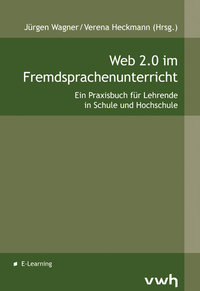
Using Web 2.0 as a Source for Material
by Andrew Pickles
Web 2.0 im Fremdsprachenunterricht
In his article, Andrew concentrates on three useful resource sites - Googlefight, Pinterest and Quora which he believes allow for "greater student self-direction" in completing tasks.
Googlefight, which is a new one to me, allows you to compare two words or phrases and find the one with the hightest number of results from a google search.
As the search was being carried out a little animation of two boxers fighting each other was played and while Andrew doesn't specifically mention its effect, I found watching it surprisingly amusing and rather addictive!! I wanted to do more and more searches........
On first appearances Googlefight seems to have limited use but as Andrew explains it can be useful for:
- introducing a new theme or subject
- finding out which phrases are more commonly used
- expanding vocabulary
The second site, Pinterest works essentially as an online pinboard allowing you to keep interesting webpages around a topic in one accessible location. Being a Web 2.0 social networking site it also allows you to share your pinboard as well as view other pinboards and add comments. You can also follow and be followed by other users. Sign up is straighforward and no longer limited to the invitation only mode that Andrew mentions.
Andrew provides interesting ideas for using Pinterest with students including encouraging them to:
- follow others who are interested in the same areas and then discuss what they have read in class
- add comments to the pinboard articles that they read
- create their own pinboards and let other classmates add pins to their boards - very useful for groupwork
- upload work from their own computers. Although restricted to image format only, screenshots of written/text work can be used
Quora is a place where you can ask and answer questions. Andrew gives a very good detailed account of how you sign up and get started. As with other social networking sites you can follow other usres or individual topics. Adding your own questions or answers to existing questions is straight forward. Also, the more followers you have or the more interesting the question the more likely you are to receive answers.
Andrew sees values in encouraging his students to "discuss and decide on which people and topics they wish to follow" and then reveiwing their choices at a later date - both of which provide a "wealth of useful language" for the teacher to use.
Andrew has also promoted discussion among his students around the results of prepared questions/topics and by getting students to evaluate the accuracy of answers given. Encouraging students to ask and answer questions among themselves provides practice for using and re-using the language and vocabulary they are learning. Indeed, Andrew also feels that teachers would find Quora useful for gathering opinions from others or finding an answers to questions that they did not know.
Examing the structue of the questions (ie grammar) is also very useful, although it is not clear as to what way students evaluate the source of the question - for example was a question in english written by an english speaker or someone using it as a second language . For me, students picking up bad grammar or struggling with the complexity of the language used in questions could be an obstacle to using the site. Also, Andrew does not mention if he ever came accross inappropriate questions and/or answers and how these are dealt with.
In a way Quora acts like a textbook except that:
- students are not restricted to the topics presented in th textbook but are free to include their own interests, which proves highly motivational - a sort of 'living textbook'
- there seems to be very little check on validity of answers. However, in using Quora, Andrew is not so worried about the 'correctness' of answers given but is more interested in the way that it encourages the use of language.
| You can buy a copy of the book online directly from the publisher (Verlag Werner Hülsbusch) or if you have any queries email Verlag Werner Hülsbusch at vertrieb@vwh-verlag.de |
***************************** The release of 'Web 2.0 im Fremdsprachenunterricht' is accompanied by a series of free webinars where the authors will present and discuss their articles.Information about these online meetings, which will be held in the presenter's mother tongue, can be found at Fremdsprachenunterricht 2.0 You can register for any of the webinars at Fortbildung Online. Recordings of the webinars will also be published on the LPM's website. ***************************** |
